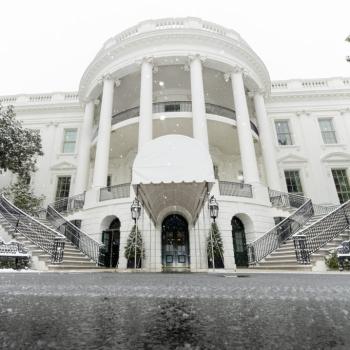Tags: Public Square, Humanism, Atheism, secularism, empathy, dialogue, community, Best Practices for Peace
Editors' Note: This article is part of the Patheos Public Square on Best Practices for Peace in 2015. Read other perspectives here.
New Year's resolutions are an important humanistic tradition. The idea of working to reform some of our bad behaviors and embracing positive goals is a noble one, especially if these reforms are long lasting. In the same letter where Kurt Vonnegut wrote "I am a humanist, which means, in part, that I have tried to behave decently without expectations of rewards or punishments after I am dead" he also spoke of the need for improving yourself and trying to make the world a better place for others while you are at it.
Unfortunately for many of us, our New Year's resolutions may last for only a few days or weeks, at which point we find ourselves once again eating junk food, neglecting the gym, and behaving just like we did in the previous year. Perhaps this is because the goals we reach for may be too far away to achieve, leaving those that strive for them to feel disappointed and even embarrassed. Or perhaps this is because the goals we set weren't meaningful enough to truly motivate us to change. But rather than give up on New Year's resolutions, people could work toward setting significant goals for self-improvement that can be actualized without a herculean effort.
One difference making and achievable resolution many could adopt for themselves is the effort to place their connection to their fellow human beings above their religious or ideological dogmas. All too often, people allow a book that was written thousands of years ago in a different era of human civilization and culture to come between their friends, family, and even strangers. Jews fight with Muslims, Muslims fight with Christians, Hindus fight with Buddhists, and atheists find themselves oppressed by religious fundamentalists of various stripes. And even more common than those examples are people who identify by the same secular or religious label but who fight among finer points of their shared faith or philosophy. While these groups might be unlikely to see eye to eye on the theological hot-button issue of the day, they could be able to relate to one another as people that share in the same human experience.
This empathy for others is both an ability and a feeling. It's the ability to understand and share in the feelings of others almost as if you are experiencing their situation yourself. It's also the very feeling that one gets and the knowledge one acquires through this process. Setting aside our interest in arguing doctrine, even for a time, in order to embrace empathy, is vital if we are to see violence and discrimination decrease.
Decreasing violence and discrimination is reason enough to strive for greater human empathy, but it's not the only benefit of placing humanity before creed. Embracing empathy builds a crucial understanding of others that contributes to real cooperation that can make this world a better place for all. Imagine if countries divided by religious strife had their luminaries and scientists all collaborating on endeavors rather than working independently due to the ongoing conflict. Helping bright minds to work together instead of against each other can only lead to discovering more about ourselves and the universe we inhabit.
Prioritizing putting ourselves in each other's shoes, regardless of religious belief or a lack thereof, is a simple enough New Year's resolution, but a powerful one that can be achieved without too much struggle. It may be hard at first for people to reach out to those who were painted as infidels or heretics, but once that initial olive branch is extended both sides will see how fundamentally similar they are and how harmful propaganda that divides human beings truly is.
There are those that benefit from these very divisions and seek to pit peoples' faith and values against each other for personal gain. Terry Jones, a pastor who publicly burned a Quran and this year organized an anti-Muslim rally, is one of those people who gains new followers by encouraging hatred and division motivated by religious differences. He has counterparts in other religious, such as the radical Muslim cleric Anjem Choudary, who calls for Islamic global domination and uses extreme religious ideology as a way to divide people and attract hardline followers. But even with a few like Jones and Choudary opposing areligious empathy, humanity can transcend such selfish behavior and better realize the good will and very humanity of our friends and foes alike.
1/7/2015 5:00:00 AM





